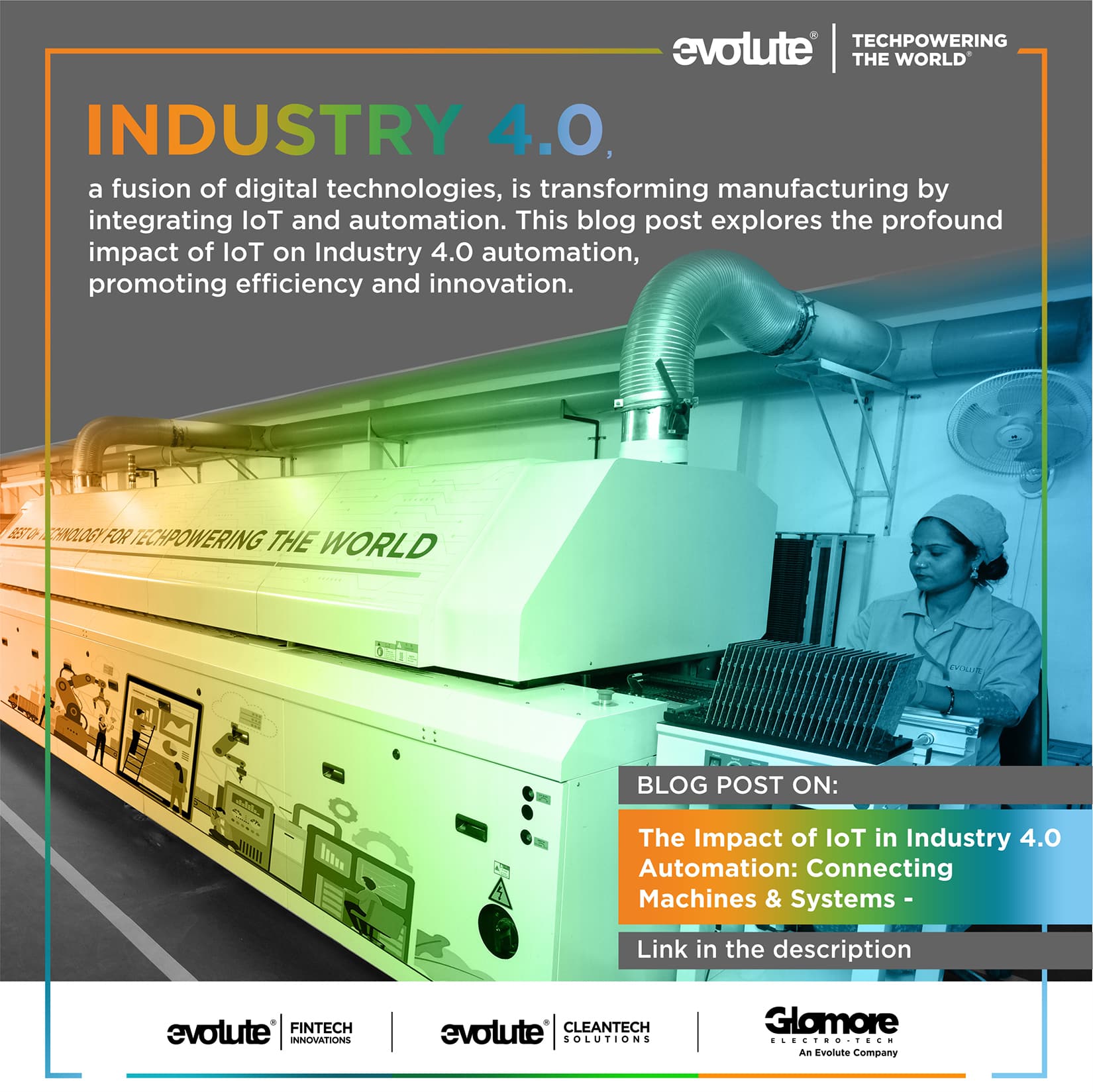In the realm of Industry 4.0, the convergence of the Internet of Things (IoT) and automation is reshaping the landscape of manufacturing and production. As we navigate the fourth industrial revolution, characterized by the fusion of digital technologies, IoT plays a pivotal role in orchestrating a seamless connection between machines and systems. This blog post explores the profound impact of IoT in Industry 4.0 automation, elucidating how the interplay of intelligent devices is transforming industries and paving the way for unprecedented efficiency and innovation.
The Essence of Industry 4.0 Automation
Industry 4.0 signifies a change in basic assumptions in manufacturing, marked by the integration of smart technologies that empower machines to communicate, analyze data, and make autonomous decisions. This new era of industrialization revolves around the digitization of processes, creating interconnected systems capable of real-time collaboration and adaptability. Automation, a cornerstone of Industry 4.0, is elevated to new heights with the infusion of IoT, bringing about a revolution in the way machines interact and operate.
The Synergy of IoT and Automation
Enhanced Connectivity: At the heart of Industry 4.0 is the concept of connectivity. IoT enables seamless communication between machines, sensors, and systems. This interconnectedness fosters a dynamic network were data flows effortlessly, creating an environment conducive to real-time decision-making.
Data-driven Insights: The marriage of IoT and automation generates an abundance of data that can be harnessed for actionable insights. Sensors embedded in machinery collect and transmit data, providing a comprehensive view of operational processes. This data-driven approach allows for predictive maintenance, reducing downtime, and optimizing efficiency.
Smart Manufacturing Processes: With IoT, automation evolves into smart manufacturing. Machines equipped with sensors and actuators can adapt their operations based on real-time data. This adaptability results in increased production efficiency, reduced waste, and the ability to respond promptly to changing market demands.
Supply Chain Optimization: The connectivity facilitated by the IoT extends beyond the factory floor to the entire supply chain. Automated systems equipped with IoT devices enable real-time tracking of raw materials, work-in-progress, and finished goods. This transparency enhances supply chain visibility, streamlines coordination, and minimizes disruptions.
Practical Applications of IoT in Industry 4.0 Automation
Predictive Maintenance: IoT-enabled sensors monitor the condition of machinery in real-time, predicting potential issues before they escalate. This initiative-taking approach to maintenance minimizes downtime, extends the lifespan of equipment, and reduces overall maintenance costs.
Quality Control: Automation, coupled with IoT, revolutionizes quality control processes. Sensors embedded in manufacturing equipment continuously monitor product quality parameters. Any deviations from the set standards trigger immediate adjustments or halts in production, ensuring consistently high-quality outputs.
Energy Management: The constructive collaboration of IoT and automation facilitates intelligent energy management. Systems can optimize energy consumption based on demand, ensuring efficient utilization, and reducing environmental impact. This not only lowers operational costs but also aligns with sustainable practices.
Real-time Inventory Management: IoT sensors in warehouses and production facilities provide real-time visibility into inventory levels. Automated systems can then reorder supplies automatically, preventing stockouts and minimizing excess inventory. This results in cost savings and improves overall inventory management.
Overcoming Challenges in Implementation
While the benefits of integrating IoT into Industry 4.0 automation are evident, challenges do exist. Security concerns, interoperability issues, and the high upfront costs of implementing IoT solutions are among the hurdles that organizations may face. However, strategic planning, robust cybersecurity measures, and gradual implementation can mitigate these challenges, ensuring a smooth transition to an interconnected and automated future.
Outlook: Towards a Smarter Tomorrow
As technology continues to evolve, the impact of IoT in Industry 4.0 automation is set to deepen. The advent of 5G technology, edge computing, and artificial intelligence will further enhance the capabilities of interconnected systems. Edge devices will process data locally, reducing latency and enabling faster decision-making. Artificial intelligence algorithms will analyze vast datasets, unlocking new levels of automation and efficiency.
The transformative power of IoT in Industry 4.0 is not limited to large corporations; small and medium-sized enterprises (SMEs) can also harness this technology to optimize operations and gain a competitive edge. As the cost of IoT devices decreases and the technology becomes more accessible, its adoption will proliferate across industries of all sizes.
Conclusion
In the era of Industry 4.0, the fusion of IoT and automation is reshaping the manufacturing landscape. The connectivity and data-driven insights facilitated by IoT are propelling automation to new heights, fostering smart manufacturing processes, and revolutionizing industries. As organizations navigate the challenges of implementation, the promise of enhanced efficiency, reduced costs, and unprecedented innovation beckons. Embracing the transformative potential of IoT in Industry 4.0 automation is not just a strategic choice: it is a vital step towards building a smarter, more connected, and more efficient future for industrial operations.





